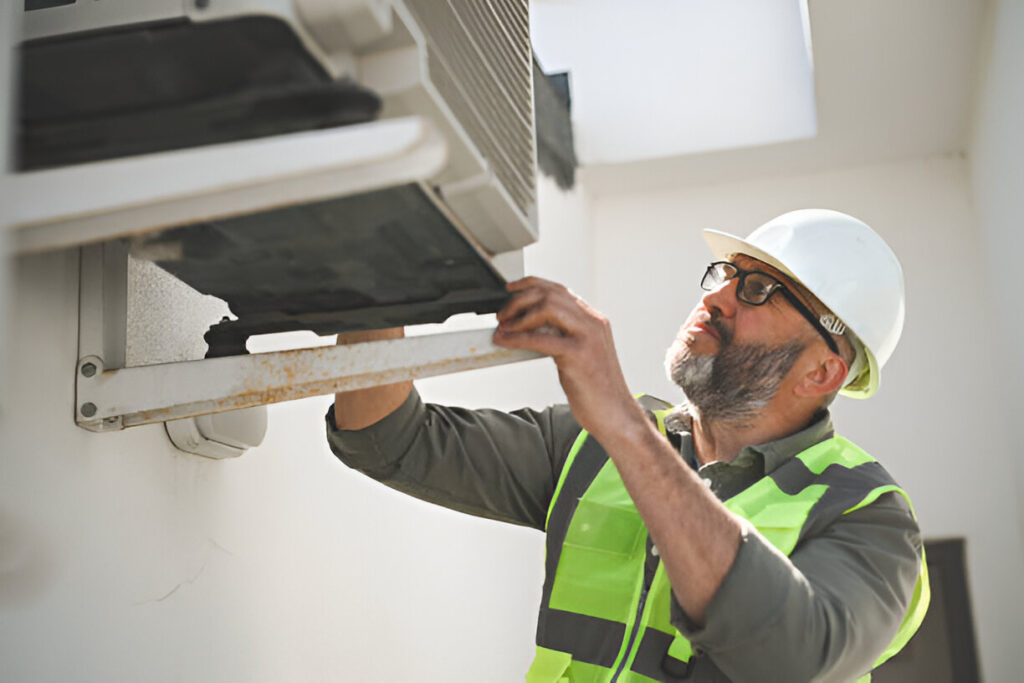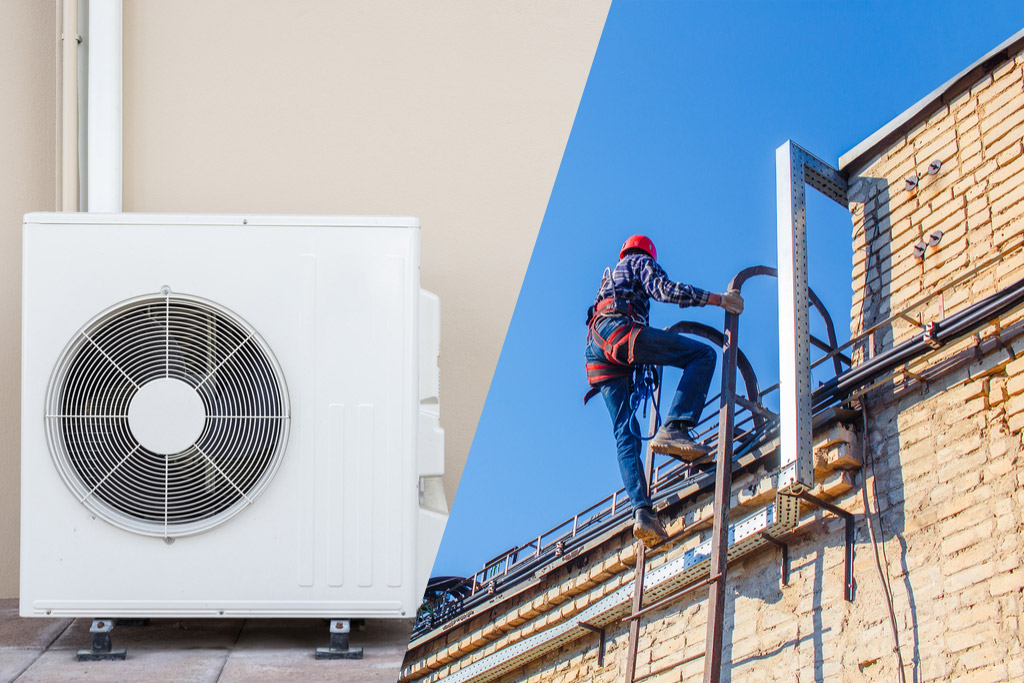In the picturesque Hills District of New South Wales, where the climate can swing from sweltering summers to chilly winters, efficient air conditioning is not just a luxury but a necessity for businesses. With HVAC systems accounting for up to 50% of energy usage in commercial buildings across Australia, understanding how to optimise these systems can lead to significant savings and enhanced comfort for both employees and customers alike.
The Importance of Efficient Air Conditioning
Efficient commercial air conditioning Hills District systems are vital for maintaining a conducive working environment. The Hills District, known for its vibrant business community, requires systems that can handle varying temperatures while being energy-efficient. With Australians expected to spend an additional $190 million on running air conditioners this summer compared to last year, businesses must consider how to manage their energy consumption effectively.
Energy Consumption and Cost Savings
As HVAC systems can represent a substantial portion of a business’s energy bill, implementing energy-efficient solutions can lead to considerable cost savings. A recent study highlighted that a deep reinforcement learning approach achieved a remarkable 37% savings in energy consumption while maintaining desired temperature ranges in open-plan offices. This innovative technology could be a game-changer for businesses in the Hills District looking to reduce their operational costs.
Moreover, investing in modern air conditioning systems equipped with smart technology can help businesses monitor and control their energy usage more effectively. By using programmable thermostats and zoning systems, companies can ensure that energy is only used when and where it is needed, further reducing unnecessary expenditure.
Environmental Impact
In addition to financial savings, energy-efficient air conditioning systems contribute positively to the environment. With the refrigeration and air conditioning industry employing 378,000 people in Australia as of 2023, there is a growing emphasis on sustainable practices within the industry. Businesses that adopt energy-efficient systems not only lower their carbon footprint but also align themselves with the increasing consumer demand for environmentally responsible practices.

Choosing the Right Air Conditioning System
When selecting an air conditioning system for commercial use, several factors must be considered to ensure optimal performance and efficiency. The Hills District offers a variety of options, and understanding these can help businesses make informed decisions.
Types of Air Conditioning Systems
- Split Systems: Ideal for smaller spaces, split systems consist of an indoor and outdoor unit. They are relatively easy to install and can be a cost-effective solution for small to medium-sized businesses.
- Ducted Systems: These systems are suitable for larger commercial spaces, providing even temperature distribution through ductwork. They offer the advantage of being discreet and can be controlled via a central thermostat.
- Multi-Split Systems: Similar to split systems but capable of cooling multiple rooms with one outdoor unit. This option is great for businesses that require individual temperature control in different areas.
- VRF Systems: Variable Refrigerant Flow systems are highly efficient and can cater to large commercial buildings. They allow for simultaneous heating and cooling in different zones, making them ideal for diverse business needs.
Factors to Consider
When choosing an air conditioning system, businesses should consider factors such as the size of the space, the number of occupants, and the specific cooling needs. Consulting with a licensed professional can provide valuable insights into the most suitable options available. Companies like Fitzgerald Air Conditioning emphasise the importance of professional installation, ensuring that systems are set up correctly for optimal performance.
Installation and Maintenance
Proper installation and regular maintenance are crucial for the longevity and efficiency of air conditioning systems. Engaging experienced professionals for installation can prevent common issues that arise from improper setup.
The Installation Process
The installation process typically involves several steps, including assessing the space, determining the appropriate system size, and installing the units and ductwork. A licensed team, such as those at Fitzgerald Air Conditioning, can ensure that the installation is completed quickly and efficiently, leaving the premises clean and tidy.
Regular Maintenance
Once installed, regular maintenance is essential to keep air conditioning systems running efficiently. This includes cleaning filters, checking refrigerant levels, and inspecting the overall system for any potential issues. Neglecting maintenance can lead to decreased efficiency and higher energy costs, making it a vital aspect of air conditioning management.
The Future of Air Conditioning in the Hills District
The air conditioning landscape is evolving, with advancements in technology leading to more efficient systems and practices. The number of Refrigerant Handling Licences (RHLs) issued by the ARC has grown by 26% between 2016 and 2023, indicating a rising demand for skilled professionals in the industry.
Emerging Technologies
Innovations such as smart thermostats, energy recovery ventilators, and advanced refrigerants are becoming increasingly popular. These technologies not only enhance efficiency but also improve indoor air quality, which is crucial for maintaining a healthy work environment.
Training and Workforce Development
The growth in trainee refrigeration and air conditioning licences, which increased from 1,961 in 2018 to 5,880 in 2023, reflects the industry’s commitment to developing a skilled workforce. This trend is essential for ensuring that businesses have access to knowledgeable professionals who can implement and maintain the latest technologies.

Conclusion
In the Hills District, where the climate can be unpredictable, efficient commercial air conditioning is essential for businesses aiming to provide a comfortable environment for their employees and customers. By understanding the importance of energy-efficient systems, choosing the right type of air conditioning, and ensuring proper installation and maintenance, businesses can stay cool while managing costs effectively.
As the industry continues to evolve with new technologies and a growing workforce, the future of air conditioning in the Hills District looks promising. By embracing these advancements, businesses can not only enhance their operational efficiency but also contribute positively to the environment and the local economy.
Learn about: Fast and Reliable Termite Removal Services in Sydney
FAQs
Efficient commercial air conditioning helps Hills District businesses reduce energy costs, maintain comfortable indoor temperatures, and improve employee productivity while minimising environmental impact.
HVAC systems can account for up to 50% of total energy consumption in commercial buildings, making efficiency upgrades a key factor in cost control and sustainability.
Common systems include split, ducted, multi-split, and VRF systems. The best choice depends on your building size, layout, and cooling requirements.
Energy-efficient systems lower electricity bills, extend equipment lifespan, reduce carbon emissions, and improve indoor air quality for employees and customers.
Businesses can reduce costs by scheduling regular maintenance, installing smart thermostats, optimising ductwork, and choosing the right-sized unit for their premises.
Professional installation ensures correct sizing, proper airflow, and optimal system performance — preventing costly inefficiencies and premature breakdowns.
It’s recommended to schedule professional maintenance at least twice a year — typically before summer and winter — to ensure peak efficiency and reliability.
Smart thermostats, energy recovery ventilators, and advanced refrigerants are revolutionising HVAC systems by improving energy savings and indoor comfort.
Regular maintenance, including cleaning filters and checking refrigerant levels, helps systems run smoothly, reducing energy use by up to 30%.
Look for licensed and experienced providers with positive reviews, transparent pricing, and tailored maintenance plans for ongoing system efficiency.

